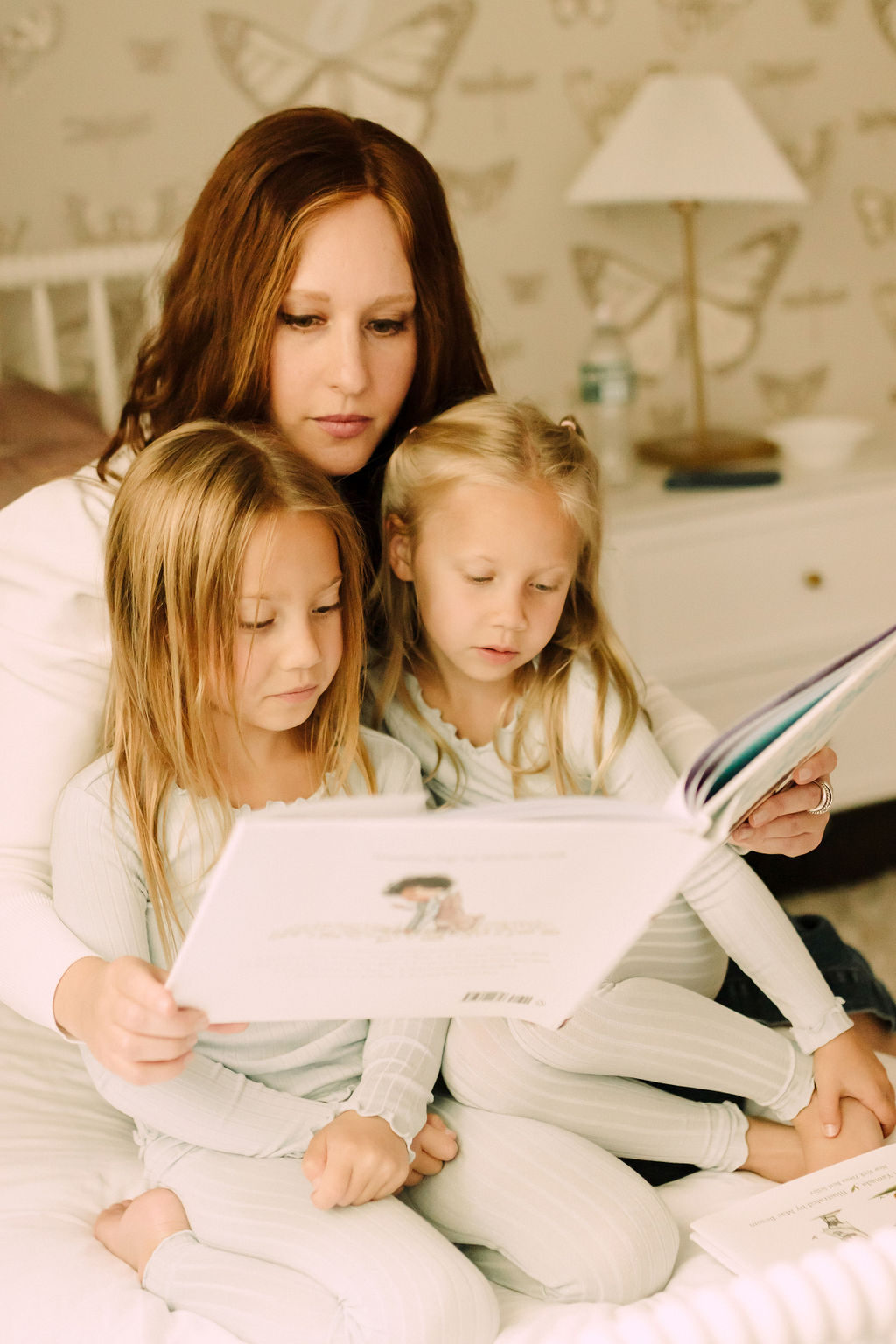- How did we get here?
- Eicha lives in our hearts
- When love breaks down
- A society that devours its young
- Parents are starving for support
- A siege on our children
- How we share sleep with our babies
- Sleep without silencing your soul
- Mashiach is born on Tisha B’Av
- The Shechina returns through nurture
- It’s gonna be the little kinderlach
Tisha B’Av is so weird as a mom.
Can you think of another day where you’d sit on the floor, fasting, while your toddler pulls on your shirt and asks for another ices?
Or a time where you’re trying to choose one of the 600 available inspirational films to the background of “I can’t find my sockkkkkkkk mommmmmy!!”
You’re trying to mourn and connect to something non-tangible while breaking up squabbles and wiping noses.
Which is, erm, quite tangible – to say the least.
While doing bedtime and managing meltdowns (also managing your kids meltdowns, too.)
Of course, this day of Jewish mourning has taken on an entirely new level of meaning for us since October 7th, and all that’s followed since then.
We know all this.
But also.
When your toddler has an incident in the bathtub, and your husband’s in shul… someone’s gotta deal with it.
It’s like an out-of-body, split-screen kinda feeling:
The soul tries to span centuries of Jewish exile, but the body is giving out cheese sticks and untwisting applesauce pouch covers (why are they so annoying to open?).
I know I’m not alone in wondering (many, many times throughout the day)
Am I doing this wrong?
Shouldn’t it feel more spiritual?
Why am I so bad at Tisha B’Av?
This year, though, I’m ready to meet the day – because I have a totally new perspective on Tisha B’av that I’ve never had before.
And I’m ready to test-drive it in real life.
Come join me?
Here’s what I discovered this year – I’m pretty sure it will change the way you think about exile and redemption for the Jewish nation.
How did we get here?
There’s a verse in Eicha that carries unspeakable grief:
רְאֵה ה’ וְהַבִּיט לְמִי עוֹלַלְתָּ כֹּה
הֲתֹאכַלְנָה נָשִׁים פִּרְיָם, עֹלֲלֵי טִפֻּחִים
“Look, Hashem, and see – to whom have You done this?
Shall women eat their own children, the babies they lovingly raised?”
(Eicha 2:20)
This is one of the most haunting questions in all of Tanach.
Amongst the horrors of the siege on Jerusalem, this one sears into our souls – mothers so starved and broken they did the unthinkable.
Rav Samson Raphael Hirsch explains that this was more than physical famine. It was a deeper collapse – the unraveling of the moral fabric of society.
When what should come naturally, ends up reversed.
Mothers – once devoted to nurturing – begin to consume what they were meant to protect.
Not out of cruelty, but out of sheer devastation.
Out of a world that stopped supporting them.
Eicha lives in our hearts
(Riki – why do you have to go there? To bring up such graphic imagery? One thing I know is true: the Torah is not a storybook. The lessons are all there for a reason. We cannot shy away from the darkness within us if we hope to overcome it.)
The Baal Shem Tov teaches that every character and story in the Torah lives inside of us.
We’re all a walking Torah – carrying the courage of Avraham, the strength of Yosef, the doubt of Amalek and the resistance of Pharaoh.
So maybe Eicha isn’t just a book we read once a year.
Maybe Eicha is something we carry in our heart.
The lonely places.
The questions with no answers.
There’s an Eicha inside each of us.
When love breaks down
This verse in Eicha that’s so hard to read is there for a reason.
The Malbim explains this as a metaphor for a deeper kind of famine: a spiritual hunger that breaks down love, care, and the natural bonds between parents and children.
When a community is in exile, it’s not just bodies that suffer, but hearts and souls. The very instincts meant to nurture and protect start to fall apart.
Ibn Ezra adds that we’re talking about a total collapse – famine, fear, and despair so intense that even family ties unravel.
It’s a raw and terribly graphic snapshot of a community losing the very things that keep it whole.
Together, these voices show us that this verse is not just a horrific historical event, but a powerful warning.
It reveals what happens when spiritual foundations crumble, and love and nurture are swallowed by despair.
Do you understand?
This is not just an ancient horror story – it’s a mirror reflecting what happens when a society, and its parents, are overwhelmed and under-supported.
Just like in the siege of Jerusalem, when basic needs are crushed and despair runs deep, parents today can feel trapped between impossible pressures.
When exhaustion, isolation, and relentless demands pile up, our natural instincts to nurture and connect can disappear within survival mode.
Parents may feel forced to “turn off” their intuition or ignore their baby’s signals – just to make it through the night, or to make it through the day.
This modern-day breakdown echoes the famine of Eicha: a world where the most sacred bonds are stretched to the breaking point.
A society that devours its young
Let’s fast forward two thousand years.
Today, our culture tells us:
- Your worth is measured by what you produce
- Your baby should be as low-maintenance as possible.
- Sleep is a measure of success.
- Don’t respond too quickly.
- Don’t let them depend on you too long..
Parents are exhausted. Desperate for help. Pressured. Isolated.
They’re doing their best with the little support they have.
They’re told they need to “fix” their baby before they fall apart.
But underneath that message is something deeper:
Parents are being asked – often without realizing it – to quiet their instincts in the name of independence.
Bit by bit, the natural rhythms of connection, responsiveness, and nurture are worn down by a world that encourages both parent and baby to detach, just to get through the day.
Parents are starving for support
The famine that struck Jerusalem during the siege wasn’t just a lack of food – it was the collapse of everything that supported life: safety, community, trust, and hope.
Mothers and families were pushed to unimaginable despair.
The hunger encompassed every area of life.
Today, we also face a famine – a famine of rest, support, and emotional safety.
Our modern society starves parents of what they most need:
- Paid parental leave that’s too short or non-existent
- No village of support.
- A relentless mental and emotional load
- Pressure to appear flawless: to look amazing, go back to work, adjust to the new realities of marriage after a new baby, maintain a spotless house, and have a infant who looks like a fashion icon by 8 weeks old.
This is a siege on our families.
There’s a starvation of the resources parents need to thrive and connect with their babies and themselves.
When things feels unstable and exhausting, parents do what anyone would do: they reach for control.
Because when you’re drowning, structure feels like a lifeline.
Many parents find hope and comfort in structured approaches to sleep, routines, or methods.
This is valid.
Rest is essential, and finding ways to support better sleep is important.
There’s nothing wrong with finding a sleep structure that works for your family and supports your baby’s well-being.
But too often, these tools are given in a vacuum, without acknowledging the famine that surrounds us.
And often… what looks like a hunger for control is a cry for help in a culture that has stopped nourishing the people who need it most.
A siege on our children
Parenting today is so, so hard.
It can often feel like we have to choose between meeting own own needs OR meeting our baby’s needs.
When in reality, the ideal is a rhythm that honors both: where rest is possible and connection is protected.
Where parents don’t have to shut down their hearts to survive the night.
Where sleep support comes with support for the parent, too – emotionally, physically, and spiritually.
This is what Rav Hirsch is describing: when parents are forced by circumstances to override the natural, tender relationship they want to have with their child.
It’s not about blame or judgment.
It’s about recognizing the spiritual and emotional toll this modern-day siege takes on our relationship with our children.
How we share sleep with our babies
When it comes to sleep parents are often told: “You just need to be consistent.”
Even if their baby is crying for hours.
Even if their gut is screaming to stop.
Even if something deep inside is saying, “This feels wrong.”
When exhaustion and desperation set in, parents reach for the only tools our modern society knows:
- Sleep training that ignores the baby.
- Pressure to push independence too early.
- Shame if their baby needs them “too much.”
They push through, because this is what parenting is supposed to look like.
Is it, though?
Maybe what’s really happening is parents quieting their own intuition in hopes of reaching a promised outcome.
This is how upside down things have become.
When sleep becomes about performance rather than connection, parents are praised for “having a baby who sleeps through the night” even if they had to go against what felt right to get there.
And of course, this does NOT come from selfishness.
It comes from survival.
Rav Hirsch calls this a reversal of nature: when the nurturer, under pressure, ends up drawing from the one they’re meant to protect.
When a baby’s natural rhythms are seen as the enemy, the baby becomes a problem to fix instead of a person to understand.
Parents learn: Don’t meet the need. Don’t hold. Don’t respond too much. Don’t let them depend on you.
But what actually happens is that the baby’s right to be dependent is stripped away – and the parent’s right to feel and follow their own instinct is lost.
We live in a society that demands adult-level sleep from babies, gives parents no support, then blames them for feeling torn when they must choose between sleep and responsiveness.
This is the collapse.
And in this collapse, parents are forced to silence the very instincts meant to protect their children – and themselves.
It’s about survival in a broken system.
Sleep without silencing your soul
Can we talk about the elephant in the room?
The widespread misconception that making changes around baby sleep = shutting down your instincts or ignoring your child’s needs.
I want you to know that you don’t have to sacrifice your health, your peace of mind, or your connection with your child just to survive.
There is a way forward – a way to find more rest while honoring your baby’s natural rhythms and your own heart.
Our philosophy honors the deep connection between parent and baby, recognizing that you are the best guide for your child’s unique rhythms and signals.
Rather than forcing a strict plan or silencing your gut feelings, we encourage you to listen closely – to your baby and to yourself – and make gradual, compassionate adjustments that feel right for your family.
Emotionally safe sleep comes from nurturing trust and safety.
Sleep support isn’t about control or perfection; it’s about finding balance – supporting better rest while maintaining the loving connection that your baby needs.
You don’t have to choose between getting rest and honoring your relationship with your baby.
With gentle guidance, understanding, and patience, it is possible to improve sleep in a way that feels sustainable, respectful, and healing for the whole family.
Your intuition is your greatest resource, and when you trust it, you’re helping your baby sleep – and you’re nurturing their whole being.
Mashiach is born on Tisha B’Av
The Talmud Yerushalmi teaches us that Mashiach is born on Tisha b’Av.
אָמַר רַבִּי אַבָּהוּ, בַּשָּׁעָה שֶׁחָרַב בֵּית הַמִּקְדָּשׁ נוֹלַד מְשִׁיחַ.
(ירושלמי ברכות ב:ד)
“Rabbi Abahu said: At the very moment the Beit HaMikdash was destroyed, Mashiach was born.
Mic drop.
Mashiach entered the world as a fragile, vulnerable baby.
We often expect geulah to be dramatic – lightning, trumpets, and fanfare.
But Tisha B’Av teaches us that the real breakthrough begins in the dark, in the cracks, in what seems small and powerless.
Just like parenting.
It’s the quiet moments at 2 a.m., when your baby cries and your body aches and you can’t do this AGAIN.
It’s the moment you choose to pick up your baby again and soothe them, despite the fatigue and pressure to “just let them cry it out.”
Those tiny acts of presence feel invisible are actually building trust, safety, and deep connection.
In these moments, you’re not just “getting through the night.”
You’re doing something holy.
You’re participating in the very process of repairing, healing, and rebuilding the future – bit by bit.
If you’ve ever felt like your sleepless nights are meaningless or that your exhaustion means you’re failing, I want you to remember this.
Your presence is the beginning of redemption.
This is where the healing starts – not in grand gestures or public displays, but in the tender, consistent care only a parent can give.
When the sages say Mashiach was born on Tisha B’Av, they’re reminding us that the greatest hope often starts in the darkest times, in the smallest hands, and in the softest cries.
Rav Samson Raphael Hirsch reminds us that “Tisha B’Av is not a day of despair. It is a day of the greatest hope, because we are mourning something we still believe will return.”
In Rome, the Jewish community has the most breathtaking custom on the night of Tisha B’Av. Like hundreds of thousands of Jews around the world, they sit on the floor in synagogue and read Megillas Eicha – but with one difference. Each Jew holds a candle, and with the main lights of the synagogue turned off, they read Eicha by flickering candlelight.
And when the reading has concluded, they blow out the candle-but they don’t dispose of it. They take the candle home with them, where they save it until Chanuka, when they use it once more, to light the Menorah. The symbol of geulah, of redemption, of ancient Judea and of modern Israel – a glow that lights up the world. M’eivel l’yom tov: from mourning to celebration.
As a parent, you are the light breaking through exile, the candles of Eicha reigniting the Chanuka lights. You are the bridge that will guide your children as the world traverses from exile to redemption. You are the light.
The Shechina returns through nurture
In kabbalistic thought, the Shechinah represents Mother: the aspect of Hashem that nurtures and empathizes.
When the Beis HaMikdash was destroyed, it was more than a national tragedy – it was the exile of the Shechinah itself, the Divine Mother.
The force of nurture, warmth, and closeness in the world was driven out.
And when that mothering energy disappears from a society, what’s left is survival. Disconnect. Parents pushed past their limits.
Babies treated like problems.
The sacred bond between parent and child begins to fray.
But just as the Shechinah went into exile, She will one day be redeemed – and the only way out is to rebuild what was lost.
Through mothering itself.
Every time you listen to your baby’s needs…
Every time you pick up your crying child instead of pushing them away…
Every time you choose to show up, even when it’s hard…
You’re bringing back the Shechinah.
The Divine Mother.
As the Zohar says
כָּל מַאן דְּאַשְׁתַּדַּל בִּבְנַיְיהוּ דְּיִשְׂרָאֵל, כְּאִילוּ אִשְׁתַּדַּל בִּשְׁכִינְתָּא
“Anyone who puts effort into the children of Israel, it is as if they are supporting the Shechinah.”
The world may feel broken. The system is harsh. And every small act of nurture – every moment of showing up – is an act of redemption.
Mothering is how the Shechinah returns.
It’s gonna be the little kinderlach
We all know the song – it’s gonna be the little kinderlach who will make Mashiach come 🎵
The Lubavitcher Rebbe explains children represent new beginnings: pure, full of potential, and reminders that Hashem still believes in us.
In their innocence, children naturally live in a state of geulah, where connection and closeness to Hashem are the default.
Children don’t question their worth; they just exist in their worthiness.
And in the presence of our children, we soften too.
An innocent question, sweet and pure prayer, or raw emotion can stir something buried deep in our adult hearts.
That’s how Mashiach comes – not through force.
Through tenderness.
Through softness.
Rabbi Shais Taub explains (this forever blew my mind) that parenting is a redemptive act.
Drawing from the Gemara that says Mashiach won’t come until all souls have descended (Yevamot 62a), he teaches that every child we lovingly raise brings us closer to redemption.
Parenting isn’t just a job – it’s the spiritual engine of geulah.
Every time you respond to your baby’s cries, choose presence over perfection and honor their rhythms, you’re bringing redemption.
By parenting with tenderness and trusting your instincts, you’re not only shaping your child’s world – you’re actively bringing Mashiach.
Your love is healing the world.
Parenting is tough.
No two ways about that.
It’s really, really hard work.
The world may push you toward detachment or independence.
But true healing comes from honoring your baby’s humanity – and your own.
So in the dark and sleepless nights, when you wonder if your love and effort matter, remember this:
Redemption begins in the smallest and most vulnerable places. With every soothing touch and gentle response, you are bringing redemption closer – bit by bit, moment by moment.
This is the real hope of parenting: building a future where love endures, even in the hardest times – and connection survives every storm.
This is Mashiach.
When we will reunite with the Divine Mother in us all.








Comments +